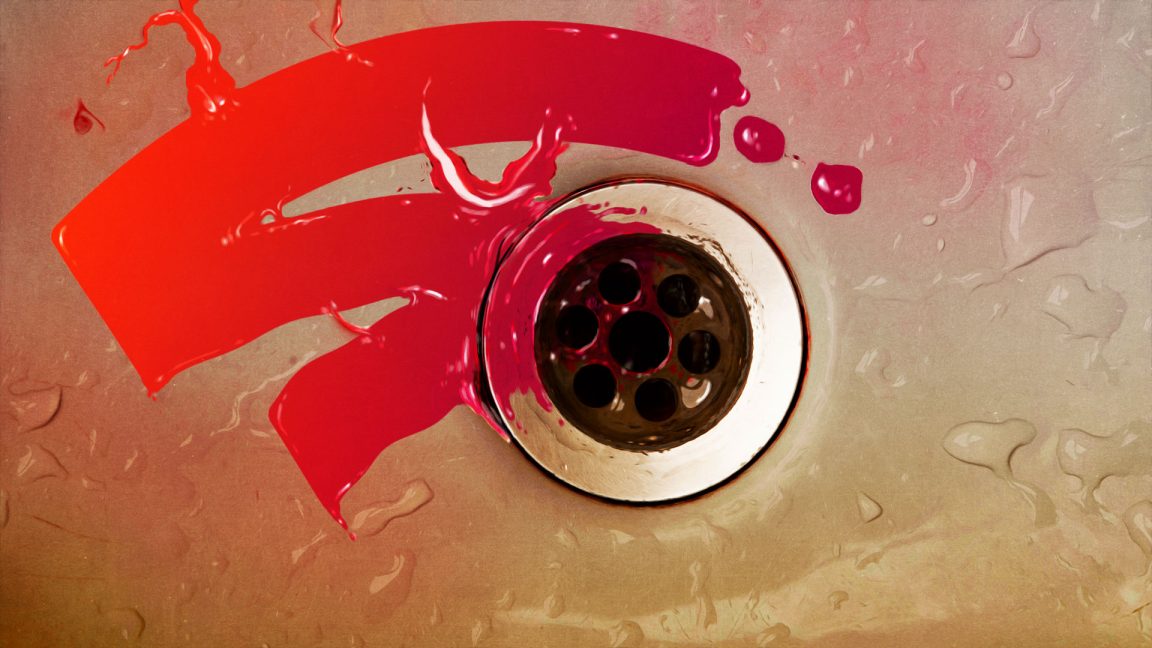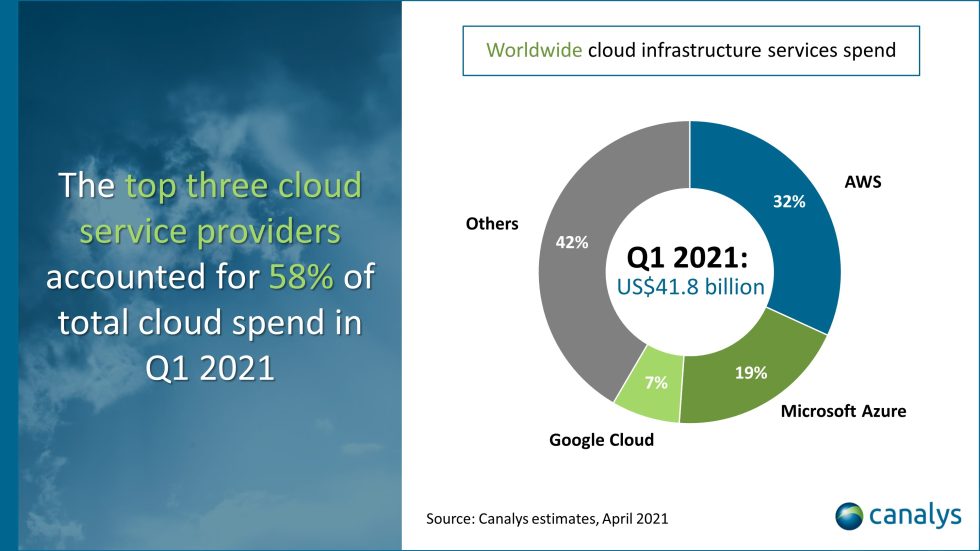Maiden Voyage
Gold™ Member

Google should kill Stadia
In two years, Google hasn’t shown a single significant advantage in cloud gaming.
 arstechnica.com
arstechnica.com
In two years, Google hasn't shown a single significant advantage in cloud gaming.
Stadia looks doomed.
At the beginning of the month, a report from Business Insider detailed ongoing issues with Google's troubled streaming platform. Apparently, Google is putting the consumer product on the back burner while it tries to sell the Stadia technology as a white-label service to power other companies' cloud offerings.
Much has happened between the 2018 "Project Stream" beta, the official Stadia launch in 2019, and today. You could arguably call Google a leader in the second wave of cloud gaming, after the early debuts of services like PS Now and OnLive. Now, though, there is more competition, and the demands of the market are crystallizing. Google tried to make a case that it could bring market advantages to cloud gaming, but the company's vision has not borne fruit. Today, Stadia is languishing and has few prospects of success.
No company wants to call its own project a failure, of course. But now might be a good time for Google to pause for a moment and ask, "What, exactly, are we doing here?" Why does it want to be in the cloud gaming market? What advantages does it have over its competitors, and how does it plan to maintain these advantages over time?
There are no good answers to these questions.
Stadia doesn't have the scale Google implied it would
Let's return to the original Stadia announcement at the 2019 Game Developers Conference and see how some of Google's original claims have played out. Google's GDC presentation emphasized the company's cloud expertise, but it glossed over how that expertise would help win the cloud gaming space.
Google CEO Sundar Pichai opened the Stadia announcement by touting the worldwide scale of Google's cloud, saying:
Our custom server hardware and data centers can bring more computing power to more people on planet Earth than anyone else. Today, we are in 19 regions and in over 200 countries and territories connected by hundreds of thousands of miles of fiber optic cables.
Google is a massive cloud computing company that has servers all over the world. So Stadia is available all over the world, right?
Not exactly. Stadia certainly isn't available in "over 200 countries." It's available in just 22 countries, or about 10 percent of the scale Pichai heavily implied Google could work at.
Until recently, Stadia's home inside Google has been the hardware division, with project leader Phil Harrison reporting to Google Hardware SVP Rick Osterloh. Google is actually pretty bad at competing on an international scale, and every Google Hardware product is capped at about 20 countries. It is strange that Stadia, a cloud service, ended up in the hardware division, but that's where Google decided to put it. The company really wants people to use its game controller and Chromecast media players, so Stadia is limited to the small list of countries Google is willing to sell hardware in. (If you compare the Google Hardware country list to the Stadia country list, they are essentially the same.)
To be fair, international business is hard. Can any of Google's competitors match Stadia's 22-country distribution list?
Nvidia's GeForce Now is available in 82 countries. Xbox Cloud Gaming—which is still labeled a "beta"—is available in 26 countries. Google is in third place. PlayStation Now—the most neglected service on our list (though it is reportedly due for a big update)—works in 19 countries. Google has Amazon Luna soundly beat, at least. That service is still in an invite-only "early access" and is available in one country, the United States.
Google has no latency advantage
So Google is bad at international distribution—anyone outside of the US will tell you this. Google is a massive cloud company, though, and with all of that experience from YouTube video streaming and other server technology, Google should have unmatched cloud expertise.
That was the sales pitch from Stadia Head of Engineering Majd Bakar during the reveal event:
We've built Stadia's architecture on top of the Google data center network, the same network that has been delivering search results to your fingertips in milliseconds for more than 20 years. The network consists of fiber optic links and subsea cables between hundreds of points of presence and more than 7,500 edge node locations around the globe, all connected with our network backbone. Stadia is built on infrastructure that no one else has. More edge nodes mean the compute resources are closer to players, which results in better performance.
This is the latency argument. Google has more servers in more places, and because there is probably one close to you, latency will be lower. This should be a competitive advantage for Google. Is it?
You won't find much of a consensus winner among the current cloud gaming options. Ars' testing gives GeForce Now a slight latency advantage over Stadia. Digital Foundry has GeForce Now beating Stadia in every latency test and points out that GeForce's 120 fps mode is something Stadia can't touch. In PC Gamer's latency tests, GeForce Now soundly beat Stadia; the publication even experienced in-game rubber-banding due to lag between Google and the game server. Gamers Nexus gave Stadia a slight edge over GeForce Now, but only by 12 ms (less than one 60 fps frame).
Google has no actual competitive advantage here. No one will find Stadia's lag acceptable if they find the lag on other services unacceptable. The cloud advantage was one of the main pillars upon which the Stadia business was built, and there just isn't any evidence that this theoretical benefit is working to Google's benefit in real life. Nvidia isn't even a cloud company, and it can at least match Google.
I don't know if somebody at Google needed to hear this in 2018, but the Gmail servers can't run a video game.
Google runs incredible warehouse-scale computers that push exabytes of data around the world for apps like Gmail, Google Search, YouTube, and more. But Google designed all of those services, so the platforms were created from the ground up to run on Google's warehouse-scale computers. A video game is notdesigned to run on a warehouse-scale computer, so none of the company's existing data centers are all that helpful when it's time to game. Google's traditional servers can push the video frames around once they're made, but they can't run Doom. Superior servers could theoretically push you the video frames faster with more latency, but as we've established, there is no evidence for that happening. Whatever cloud synergy Google was supposed to have with Stadia doesn't seem to exist.
One of the many problems the platform faces is that Stadia hardware is only good for Stadia. It can't run anything other than Stadia, so Google is reluctant to invest in this single-use hardware and keep it up to date. The Stadia computer you're renting from Google is pretty outdated. The Stadia hardware was equivalent to a mid-range PC when the service launched in 2019, and Google has never upgraded the specs. Today (if you can find the supply) you could get this level of PC performance for a few hundred bucks.
Stadia games are regularly held back by how slow the servers are. Destiny 2 can only run at the PC equivalent of medium settings. Despite claims that Stadia runs at 4K, that resolution is usually upscaled from a native 1080p or 1440p because, again, Stada is too slow. (There's even a class-action lawsuit over Google's allegedly false 4K advertising).
The real-life situation is the opposite of what Bakar claimed during the Stadia announcement:
Stadia is not constrained by the limitation of traditional console systems. Instead, we have built a truly flexible, scalable and modern platform that allows us to push performance beyond what was previously considered possible. This architecture gives us even more flexibility to scale. And thanks to fast transfer speeds between the Stadia instances in our data center, our platform can connect instances together to dynamically expand the capabilities, along with the need of your games. As a developer, you're used to being forced to tone down your creative ambition, [which is] limited by the hardware. But our vision with Stadia is that the processing resources available will scale up to match your imagination. In this new generation, the data center is your platform.
This entire statement appears to be false. Power scaling has certainly never been demonstrated to the public on any Stadia game at any time during its two-year history. Many games are limited on Stadia and could really use more power, but this feature does not seem to exist. There's no missing context about this being a "plan for the future," either. During the event, the feature was advertised as a system that would be ready at Stadia's launch.
Stadia VP Phil Harrison also talked about the service's supposed power scaling and again implied that it would be ready for launch, saying, "The fundamental benefit of our cloud-native infrastructure is that developers will be able to take advantage of hardware and power in ways never before possible, and that includes taking advantage of the power of multiple GPUs at once." He even showed a video demo of multi-GPU support in action.
Harrison called the multi-GPU feature Stadia's "fundamental benefit," which is certainly not a phrase I would use for a feature that didn't exist at launch, didn't come shortly after launch, and indeed may never exist.
Here's another performance slide:
It was certainly ambitious to claim that an 8K, 120 fps mode was in the works when the company couldn't even deliver 4K, 60 fps performance without upscaling. At least this one was scoped to "the future."
Cloud gaming is more hardware business than cloud business
So if cloud gaming needs completely custom hardware and Google's supposed cloud supremacy hasn't resulted in a single tangible market advantage, isn't the company just a hardware vendor? It isn't selling the gaming PC; customers are renting it. Therefore, won't the best cloud gaming company just be a gaming PC hardware company?
For Exhibit A of this argument, let's look at Nvidia's GeForce Now, which is absolutely smoking Google Stadia with the GeForce Now 3080 package. Unlike Google's three-year-old mid-range PCs, Nvidia is rocking state-of-the-art performance that's on par with one of the fastest video cards money can buy.
It makes perfect sense that Nvidia is winning the cloud gaming race. It is the world's biggest graphics card company, and developers already build games with features and APIs aimed at Nvidia cards. Because Nvidia makes the cards, it not only has the resources to get existing graphics cards for cheap (and before the Bitcoin miners do), but it can also design custom cards aimed at server workloads. The GeForce Now 3080 package is meant to be equivalent to the consumer GeForce RTX 3080 in power, but Nvidia actually built a custom, RTX-upgraded variant of its Tesla T10 server-grade GPU. It's serious hardware from a serious hardware company, and it's something Google Stadia can't compete with.
Nvidia's vertical graphics card integration also puts it in a solid position for future upgrades. The game-streaming market is just getting started, but once several serious competitors become fully operational, the space may turn into a battleground. Every year, the question will be, "Who has the fastest cloud gaming hardware?"
The company that can win that war—and maybe still turn a profit—is Nvidia.
For Nvidia, the speed of the 3080 package makes for a solid sales pitch: This cloud PC is probably faster than your home system, so cloud gaming is worth it.Cloud gaming will always present a latency tradeoff, but that latency is easier to accept if you're getting otherwise-unattainable graphics quality along with it. Nvidia is the first company to enable ray tracing on its cloud platform, and it's pushing features like 120 fps and 4K resolution.
It's conceivable that in a few generations, you won't be able to build a PC that can compete with the cloud. That is pretty much the way non-gaming cloud workloads operate today. You could never have a local copy of Google Maps or YouTube, because the cloud computer is just way too powerful and always up to date, and it has essentially unlimited storage.
Exhibit B in the "hardware companies will win cloud gaming" argument is Microsoft, whose Xbox Cloud Gaming service is literally "rent an Xbox." The company produced a great intro animation for this service back when was it was called "Project xCloud": Four Xboxes slide into frame, the plastic shells come off, and the four motherboards go into a server blade. It's just a big XBox server farm. You won't get the speed and power of glorious PC gaming hardware, but you'll get the console advantage that comes from developers being able to target one piece of hardware to get as much performance out of it as possible.
Microsoft isn't as low-level as Nvidia when it comes to hardware, but selling around 10 million Xboxes in most years gives it a large amount of purchasing power that Google can't match. For Xbox Cloud Gaming, Microsoft is using those same components to build gaming servers, so it probably doesn't cost the company a bunch of money. Unlike Google, Microsoft has already updated its hardware; the Project X Cloud beta started with Xbox Series S units and later jumped to the latest-generation Series X hardware.
Your hardware is also useless unless developers make games for it. The Xbox already has a ton of exclusive games and a relationship with just about every major third party. Microsoft's business model also allows cloud streaming to exist as a free add-on to the red-hot Game Pass platform. It's basically the "Netflix for games" service that everyone has always wanted. Nvidia is just a Windows PC in the cloud, so the message to developers is simply "make PC games." Getting companies to make Stadia games has been much more difficult.
The gaming business is brutal, and Google doesn’t have the stomach for it
If Google has no advantages in the "cloud" part of "cloud gaming," how about the "gaming" part? Throughout Stadia's development, Google underestimated how difficult the gaming market is, how much everything costs, and how long everything takes.
Sundar Pichai opened the Stadia announcement by proclaiming to the crowd, "I'm not a big gamer." He then cited the Chrome offline dinosaur game as Google's previous gaming experience. The Chrome shoutout was meant to be a joke, but looking back, I think Pichai was raising a really good point: Google has no idea what it's doing in the gaming market.
The most damning evidence in support of that thesis is Google's mismanagement of Stadia's first and only in-house game studio, the Stadia Games & Entertainment division. At the Stadia announcement, SG&E was charged with creating exclusive first-party games and working with third parties to bring "bleeding-edge Google technology" to partner studios.
During the show, Google demoed a fully destructible game world that took advantage of cloud compute power. The company said split-screen multiplayer games could be run without a performance penalty since Stadia could just feed the output from two server instances to a single screen. Google demoed a multiplayer squad game with a live video feed from many players—an easy task since they were all just copies of each player's Stadia feed. All these cloud-specific features would need a development house to take advantage of them, and the public and other developers would need to actually use them. SG&E was supposed to be that studio, and it seemed set up for success, with Assassin's Creed co-creator Jade Raymond taking the helm.
Google killed SG&E about one year after Stadia launched, before the studio had released a game or done any public work. In a blog post announcing Stadia's pivot to a "platform technology," Stadia VP Phil Harrison explained the decision to shutter SG&E, saying, "Creating best-in-class games from the ground up takes many years and significant investment, and the cost is going up exponentially."
How are we supposed to interpret this statement from a long-term planning perspective? Did Google not know how long it takes to develop a game? Did it not know that game development is expensive?
"I'm not a big gamer."
—Google CEO Sundar Pichai
Quotes from several shocked and angry SG&E employees ended up in a Kotakureport detailing the final days of Google's mismanagement of SG&E. Phil Harrison told employees that they were making "great progress" on "establishing a strong lineup of Stadia exclusive games," only to lay them off five days later. When pressed by employees to explain what changed in the five days between "great progress" and "you're fired," Harrison admitted that nothing had changed. He offered a chilling response about the shutdown: “We knew.”
One SG&E employee couldn't fathom how Google started a game studio without knowing what it was getting into. The employee told Kotaku, “They just want an explanation from leadership. If you started this studio and hired a hundred or so of these people, no one starts that just for it to go away in a year or so, right? You can’t make a game in that amount of time... We had multi-year reassurance, and now we don’t.”
A later report from Business Insider flagged Microsoft's $7.5 billion acquisition of Bethesda as a major wakeup call for Google, saying that the deal "scared the crap out of Google executives." Again, it seems that Google only found out about the scale and cost of the gaming industry after it hired hundreds of people and made public announcements. The Xbox division did $15 billion in revenue in 2021, so even the Bethesda purchase didn't break the bank. I wonder how those same Google executives feel about Microsoft's recent purchase of Activision Blizzard for (not a typo) $68 billion.
Welcome to the gaming industry, Google.
Even if Stadia’s pivot works, Google is the #3 cloud company
With Stadia's consumer model going down the drain, Google announced it would pivot Stadia to become a behind-the-scenes, white-label data center service that the company will reportedly re-brand as "Google Stream." Instead of Google hosting the store and developers submitting apps to it, Google will quietly run branded solutions for other vendors. There are already two examples of white-label Stadia content: AT&T's Batman: Arkham Knight offering and Peloton's Lanebreak beta.
This move would make Google Stream a new part of the Google Cloud Platform, which lets third parties run their own services on Google's infrastructure. But Google isn't thriving in the cloud services arena, either. Google's web infrastructure is absolutely massive, but the company is just not great at selling that infrastructure to third parties. Enterprise customers value platform stability and compatibility, which is often at odds with Google's way of doing things. (To its credit, Google Cloud is trying to shake this reputation.)
Google is in a distant third in the cloud infrastructure market—way behind Microsoft and Amazon. Market analysis firm Canalys puts Google Cloud at only 7 percent of the cloud infrastructure market, Microsoft Azure at 19 percent, and Amazon Web Services (AWS) at 32 percent. A 2019 report from The Information claimed that Google's management gave the Cloud division an ultimatum: Come in second place by 2023 or risk losing funding. If that report is true, Google Cloud is in trouble. So Google's plan to salvage Stadia is to tie it to the last-place cloud division?
If the plan to sell cloud gaming infrastructure to third parties is a winner, why wouldn't Google's cloud rivals crush the company in this area, too? Microsoft has a bigger, better cloud business and more gaming know-how and developer connections than Google could ever dream of. Amazon is a cloud infrastructure giant and is already bragging about Luna's "Powered by AWS" pedigree and integration with Twitch, the number-one live game streaming platform.
As with consumer Stadia, it doesn't look like Google can offer a cloud gaming platform with a serious competitive advantage. Microsoft and Amazon already provide an easier developer experience. Xbox Cloud Gaming is an Xbox—if it runs on an Xbox, it will run on Xbox cloud gaming with no additional developer effort. Luna is a Windows PC in the cloud, and Amazon wants to "make porting games as low-effort as possible." Nvidia's platform isn't even really a platform—it's just a cloud Windows PC with Steam on it. Stadia is a Linux PC that runs the Vulkan API—it's not impossible to port games to the service (getting Doom Eternal running apparently took three weeks), but it's not one of the standard systems developers typically target, either.
One of the biggest problems with Stadia (and now Google Stream)—and one that Google doesn't seem to understand—is that Google's reputation for killing products is poison for a service like this. Gamers don't want to invest in Stadia, because they are afraid Google will kill it and they'll lose all their purchases. Game developers probably don't want to build for Google Stream because they're worried about Google's cloud gaming division shutting down. The situation has become a self-fulfilling prophecy, where nobody uses the product because they're afraid of it being shut down, and it gets shut down because nobody uses it. When there are other, equal-or-better options from more reputable vendors, why would you pick the Google option?
After the Stadia playbook failed with gamers, the cloud pivot seems to be repeating the same plan for enterprise customers. Google's only hope is reaching this new market first, but being one of the early movers didn't help it with Stadia. Indeed, it seems like Google is just throwing good money after bad.
Please, Google. Just let Stadia die.
Ron Amadeo Ron is the Reviews Editor at Ars Technica, where he specializes in Android OS and Google products. He is always on the hunt for a new gadget and loves to rip things apart to see how they work.







